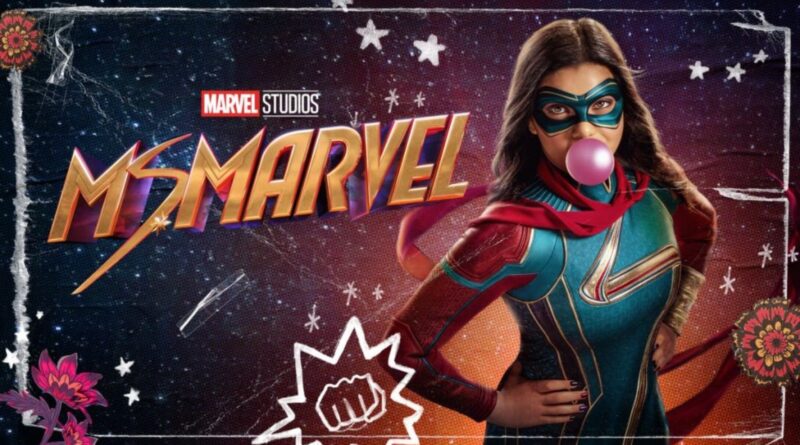Hyperspace Theories: Ms. Marvel Lights Up MCU Storytelling
The latest episode of Hyperspace Theories discusses the full story unfurled in the newest six-episode Disney+ series in the Marvel Cinematic Universe (MCU): Ms. Marvel, featuring the origin story of teenage heroine Kamala Khan. Tricia Barr and B.J. Priester are joined by longtime FANgirl Blog contributor Priya Chhaya, an historian and advocate for representation in storytelling and nonfiction alike.
First introduced in the comics, Kamala Khan stands out as Marvel’s first Pakistani-American and Muslim superhero. Like the comics, the Ms. Marvel series showcases Kamala’s family, friends, faith, and community as integral aspects of her personal identity both before and after she acquires her superpowers. At the same time, her story includes universal themes than resonate with audience members who do not share her heritage or religion, such as overprotective parents, sibling resentment, and a multi-generational immigrant experience in the United States. In addition, Ms. Marvel is prominently a story about mothers and daughters, too often still a rarity in blockbuster entertainment and other popular fiction. Kamala’s story is also unusual in featuring an intact family unit.
The Ms. Marvel series also places significant emotional prominence on an important event in the 20th century history of South Asia: the Partition of India at the end of British imperial occupation, creating new borders and the new country of Pakistan. (Subsequently, East Pakistan became the independent nation of Bangladesh.) The Partition not only sparked religiously motivated violence in India, but also the largest mass migration in human history as millions of Muslim refugees fled to Pakistan. Ms. Marvel highlights the Partition in the flashback love story of Aisha and Hasan, as well as its lingering ramifications in the lives of Sana, Muneeba, and Kamala. Although the Clandestines and the Department of Damage Control serve as Kamala’s overt antagonists in the series, Ms. Marvel perhaps suggests that the real villain is the generational trauma of imperialism.
Related Links:
- Ms. Marvel Powerfully Portrays the Pain of Partition (Nerdist)
- Ms. Marvel head writer Bisha K. Ali’s Google Docs reading list about the Partition (Twitter)
- Bon Jovi tweets about Ms. Marvel (Sana Amanat on Twitter)
Contact Information:
- Hyperspace Theories: Twitter @HyperspacePod
- Tricia Barr: Twitter @FANgirlcantina; email Tricia@fangirlblog.com
- B.J. Priester: Twitter @RedPenofLex; email Lex@fangirlblog.com
- Priya Chhaya: Twitter @priyastoric
- Hyperspace Theories: Bad Luck Ghorman - June 2, 2025
- Hyperspace Theories: One Year Later as ANDOR Kicks Off Season Two - May 15, 2025
- REVIEW: Tales of the Underworld - May 4, 2025












Pingback:The End is Only the Beginning – FANgirl Blog